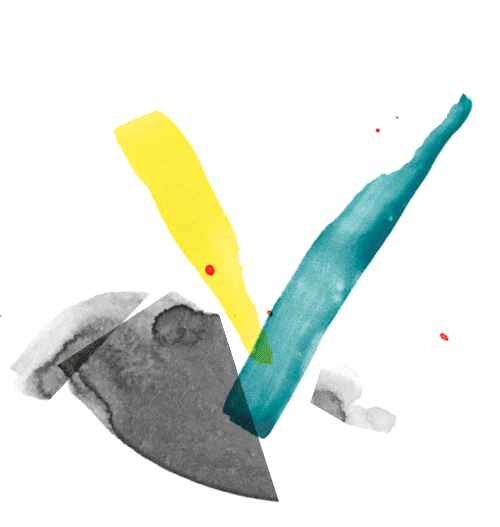

Sign up for our newsletters. You can change the settings or unsubscribe at any time.
Thank you for your subscription. We have sent you an e-mail with a confirmation link.


exp. 1
exp. 2
exp. 3

Małgorzata Mirga-Tas
Venue: KW Institute for Contemporary Art
Małgorzata Mirga-Tas
Born 1978 in Zakopane, PL – lives and works in Czarna Góra, PL
The sculptural installation Lost Memory (2018) is an echo and means of healing: In 2016 anonymous vandals destroyed a public monument, a massive wooden carving by artist Małgorzata Mirga-Tas. The work had been inaugurated in 2011 as part of the 12th International Roma Caravan Memorial. Its site marked the place where in 1942, twenty-nine Roma were murdered in the forest of Borzęcin Dolny by German soldiers and Blue Police in occupied Poland. The destruction of the sculpture was willful: it was pulled from its base and smashed to pieces with an axe. Reconstructed and recarved, the monument was restored, but the artist kept the broken pieces of the original work, using them to cast the wax and porcelain components that constitute Lost Memory. Tactile and sensual, these figural elements suggest the vitality and vulnerability of flesh while also drawing on the apotropaic significance that wax carries in Romani culture. Although the 2016 attack was an attempt to negate history and intimidate contemporary Roma, Lost Memory tends to the wounds of the sculpture and community without erasing the violence; its cast components ensure that the work can be remade, even if parts are (again) destroyed. Mirga-Tas reminds us that memory is embodied and that both trauma and resilience are inherited.
Also on view are parts of the artist’s series of patchwork screens Romani Kali Daj [Roma Madonna, 2019/20], which portrays women important to the artist. Incorporating the fabric of clothing worn by her relatives and community members, the screens show figures, such as Mirga-Tas’ grandmother and mother who, having respectively survived World War II and the totalitarian Communist rule in Poland, transcended traditional gender roles in terms of their position in the family. Surrounded by objects dear to them, the women are shown in moments of reflection, alone or with family—witnesses to history who link the past with the present.
Pia Chakraverti-Wuerthwein
Struggle as Culture: The Museum of Solidarity, 1971–73
María Berríos
Essay
BLM KOREA ARTS
#BlackLivesMatter #BLMKoreaArts
Young-jun Tak
Statement
Feminist Health Care Research Group
Web archive
Umbilical Cord Amulet
McCord Museum
Object
Invitation to the Species: Cecilia Vicuña
Tamaas / Cecilia Vicuña
Podcast
Glossary of Common Knowledge
L’Internationale Online
Glossary
By using this website you agree to the use of cookies in accordance with our data privacy policy.

Małgorzata Mirga-Tas
Venue: KW Institute for Contemporary Art
Małgorzata Mirga-Tas
Born 1978 in Zakopane, PL – lives and works in Czarna Góra, PL
The sculptural installation Lost Memory (2018) is an echo and means of healing: In 2016 anonymous vandals destroyed a public monument, a massive wooden carving by artist Małgorzata Mirga-Tas. The work had been inaugurated in 2011 as part of the 12th International Roma Caravan Memorial. Its site marked the place where in 1942, twenty-nine Roma were murdered in the forest of Borzęcin Dolny by German soldiers and Blue Police in occupied Poland. The destruction of the sculpture was willful: it was pulled from its base and smashed to pieces with an axe. Reconstructed and recarved, the monument was restored, but the artist kept the broken pieces of the original work, using them to cast the wax and porcelain components that constitute Lost Memory. Tactile and sensual, these figural elements suggest the vitality and vulnerability of flesh while also drawing on the apotropaic significance that wax carries in Romani culture. Although the 2016 attack was an attempt to negate history and intimidate contemporary Roma, Lost Memory tends to the wounds of the sculpture and community without erasing the violence; its cast components ensure that the work can be remade, even if parts are (again) destroyed. Mirga-Tas reminds us that memory is embodied and that both trauma and resilience are inherited.
Also on view are parts of the artist’s series of patchwork screens Romani Kali Daj [Roma Madonna, 2019/20], which portrays women important to the artist. Incorporating the fabric of clothing worn by her relatives and community members, the screens show figures, such as Mirga-Tas’ grandmother and mother who, having respectively survived World War II and the totalitarian Communist rule in Poland, transcended traditional gender roles in terms of their position in the family. Surrounded by objects dear to them, the women are shown in moments of reflection, alone or with family—witnesses to history who link the past with the present.
Pia Chakraverti-Wuerthwein
Invitation to the Species: Cecilia Vicuña
Tamaas / Cecilia Vicuña
Podcast
Weaving Solidarity
Renata Cervetto and Duygu Örs
Q&A
Undocumented Rumours and Disappearing Acts from Chile
María Berríos
Essay
Touching Feeling. Affect, Pedagogy, Performativity
Eve Kosofsky Sedgwick
Monograph
Umbilical Cord Amulet
McCord Museum
Object
#fight4rojava
Graffiti
By using this website you agree to the use of cookies in accordance with our data privacy policy.

Małgorzata Mirga-Tas
Venue: KW Institute for Contemporary Art
Małgorzata Mirga-Tas
Born 1978 in Zakopane, PL – lives and works in Czarna Góra, PL
The sculptural installation Lost Memory (2018) is an echo and means of healing: In 2016 anonymous vandals destroyed a public monument, a massive wooden carving by artist Małgorzata Mirga-Tas. The work had been inaugurated in 2011 as part of the 12th International Roma Caravan Memorial. Its site marked the place where in 1942, twenty-nine Roma were murdered in the forest of Borzęcin Dolny by German soldiers and Blue Police in occupied Poland. The destruction of the sculpture was willful: it was pulled from its base and smashed to pieces with an axe. Reconstructed and recarved, the monument was restored, but the artist kept the broken pieces of the original work, using them to cast the wax and porcelain components that constitute Lost Memory. Tactile and sensual, these figural elements suggest the vitality and vulnerability of flesh while also drawing on the apotropaic significance that wax carries in Romani culture. Although the 2016 attack was an attempt to negate history and intimidate contemporary Roma, Lost Memory tends to the wounds of the sculpture and community without erasing the violence; its cast components ensure that the work can be remade, even if parts are (again) destroyed. Mirga-Tas reminds us that memory is embodied and that both trauma and resilience are inherited.
Also on view are parts of the artist’s series of patchwork screens Romani Kali Daj [Roma Madonna, 2019/20], which portrays women important to the artist. Incorporating the fabric of clothing worn by her relatives and community members, the screens show figures, such as Mirga-Tas’ grandmother and mother who, having respectively survived World War II and the totalitarian Communist rule in Poland, transcended traditional gender roles in terms of their position in the family. Surrounded by objects dear to them, the women are shown in moments of reflection, alone or with family—witnesses to history who link the past with the present.
Pia Chakraverti-Wuerthwein
Expresiones de la locura: el arte de los enfermos mentales
Hans Prinzhorn
Monograph
III: La familia son quiénes se alegran con nuestros actos diarios. Detrás de las curadoras de la XI
María Berríos, Agustín Pérez Rubio
Conversation
Maternidades subversivas
María Llopis
Monograph
Undocumented Rumours and Disappearing Acts from Chile
María Berríos
Essay
Género y colonialidad en busca de claves de lectura y de un vocabulario estratégico descolonial
Rita Segato
Essay
Weaving Solidarity
Renata Cervetto and Duygu Örs
Q&A
By using this website you agree to the use of cookies in accordance with our data privacy policy.

Małgorzata Mirga-Tas
Venue: KW Institute for Contemporary Art
Małgorzata Mirga-Tas
Born 1978 in Zakopane, PL – lives and works in Czarna Góra, PL
The sculptural installation Lost Memory (2018) is an echo and means of healing: In 2016 anonymous vandals destroyed a public monument, a massive wooden carving by artist Małgorzata Mirga-Tas. The work had been inaugurated in 2011 as part of the 12th International Roma Caravan Memorial. Its site marked the place where in 1942, twenty-nine Roma were murdered in the forest of Borzęcin Dolny by German soldiers and Blue Police in occupied Poland. The destruction of the sculpture was willful: it was pulled from its base and smashed to pieces with an axe. Reconstructed and recarved, the monument was restored, but the artist kept the broken pieces of the original work, using them to cast the wax and porcelain components that constitute Lost Memory. Tactile and sensual, these figural elements suggest the vitality and vulnerability of flesh while also drawing on the apotropaic significance that wax carries in Romani culture. Although the 2016 attack was an attempt to negate history and intimidate contemporary Roma, Lost Memory tends to the wounds of the sculpture and community without erasing the violence; its cast components ensure that the work can be remade, even if parts are (again) destroyed. Mirga-Tas reminds us that memory is embodied and that both trauma and resilience are inherited.
Also on view are parts of the artist’s series of patchwork screens Romani Kali Daj [Roma Madonna, 2019/20], which portrays women important to the artist. Incorporating the fabric of clothing worn by her relatives and community members, the screens show figures, such as Mirga-Tas’ grandmother and mother who, having respectively survived World War II and the totalitarian Communist rule in Poland, transcended traditional gender roles in terms of their position in the family. Surrounded by objects dear to them, the women are shown in moments of reflection, alone or with family—witnesses to history who link the past with the present.
Pia Chakraverti-Wuerthwein
Hatred Among Us
Lisette Lagnado
Essay
III: La familia son quiénes se alegran con nuestros actos diarios. Detrás de las curadoras de la XI
María Berríos, Agustín Pérez Rubio
Conversation
BLM KOREA ARTS
#BlackLivesMatter #BLMKoreaArts
Young-jun Tak
Statement
„Klaus Eckschen: Hörspiel“
Die Remise
Hörspiel
Struggle as Culture: The Museum of Solidarity, 1971–73
María Berríos
Essay
Expresiones de la locura: el arte de los enfermos mentales
Hans Prinzhorn
Monograph
By using this website you agree to the use of cookies in accordance with our data privacy policy.
By using this website you agree to the use of cookies in accordance with our data privacy policy.




